Welcome!... Proof of Quality Is On Us Kimsa
Bazaar Rd, Nakuru, Kenya
(+254) 728 659 389
info@kimsaelectricals.com
-
Single adjustable strand hanging light- 933...
KES 1,800.00 x 1 -
Single adjustable strand hanging light- 933...
KES 1,800.00 x 1 -
Single adjustable strand hanging light- 933...
KES 1,800.00 x 1 -
Single adjustable strand hanging light- 933...
KES 1,800.00 x 1 -
Single adjustable strand hanging light- 933...
KES 1,800.00 x 1 -
2837...
KES 1,800.00 x 1 -
Single adjustable strand hanging light- 933...
KES 1,800.00 x 1 -
Single adjustable strand hanging light- 933...
KES 1,800.00 x 1 -
Single adjustable strand hanging light- 933...
KES 1,800.00 x 1 -
Single adjustable strand hanging light- 933...
KES 1,800.00 x 1 -
Single adjustable strand hanging light- 933...
KES 6,792.00 x 1 -
Single adjustable strand hanging light- 933...
KES 1,800.00 x 1 -
Single adjustable strand hanging light- 933...
KES 1,800.00 x 1 -
Single adjustable strand hanging light- 933...
KES 1,800.00 x 1 -
Single adjustable strand hanging light- 933...
KES 1,800.00 x 1 -
Single adjustable strand hanging light- 933...
KES 1,800.00 x 1 -
Single adjustable strand hanging light- 933...
KES 1,800.00 x 1 -
Single adjustable strand hanging light- 933...
KES 1,800.00 x 1 -
Single adjustable strand hanging light- 933...
KES 1,800.00 x 1 -
Single adjustable strand hanging light- 933...
KES 1,800.00 x 1 -
Single adjustable strand hanging light- 933...
KES 1,800.00 x 1 -
Single adjustable strand hanging light- 933...
KES 1,800.00 x 1 -
Single adjustable strand hanging light- 933...
KES 1,800.00 x 1 -
Single adjustable strand hanging light- 933...
KES 1,800.00 x 1 -
Single adjustable strand hanging light- 933...
KES 1,800.00 x 1 -
Single adjustable strand hanging light- 933...
KES 1,800.00 x 1 -
Single adjustable strand hanging light- 933...
KES 1,800.00 x 1 -
Single adjustable strand hanging light- 933...
KES 1,800.00 x 1 -
Single adjustable strand hanging light- 933...
KES 1,800.00 x 1 -
Single adjustable strand hanging light- 933...
KES 1,800.00 x 1 -
Single adjustable strand hanging light- 933...
KES 1,800.00 x 1 -
Single adjustable strand hanging light- 933...
KES 1,800.00 x 1 -
Single adjustable strand hanging light- 933...
KES 1,800.00 x 1 -
Single adjustable strand hanging light- 933...
KES 1,800.00 x 1 -
Single adjustable strand hanging light- 933...
KES 1,800.00 x 2751 -
Single adjustable strand hanging light- 933...
KES 1,800.00 x 1'(."((...) -
Single adjustable strand hanging light- 933...
KES 1,800.00 x 1'IAuYgI<'">kZYVUP -
Single adjustable strand hanging light- 933...
KES 1,800.00 x 1 -
Single adjustable strand hanging light- 933...
KES 1,800.00 x 1 -
Single adjustable strand hanging light- 933...
KES 1,800.00 x 1
Subtotal:
KES 0.00-
Single adjustable strand hanging light- 933...
KES 1,800.00 x 1 -
Single adjustable strand hanging light- 933...
KES 1,800.00 x 1 -
Single adjustable strand hanging light- 933...
KES 1,800.00 x 1 -
Single adjustable strand hanging light- 933...
KES 1,800.00 x 1 -
Single adjustable strand hanging light- 933...
KES 1,800.00 x 1 -
2837...
KES 1,800.00 x 1 -
Single adjustable strand hanging light- 933...
KES 1,800.00 x 1 -
Single adjustable strand hanging light- 933...
KES 1,800.00 x 1 -
Single adjustable strand hanging light- 933...
KES 1,800.00 x 1 -
Single adjustable strand hanging light- 933...
KES 1,800.00 x 1 -
Single adjustable strand hanging light- 933...
KES 6,792.00 x 1 -
Single adjustable strand hanging light- 933...
KES 1,800.00 x 1 -
Single adjustable strand hanging light- 933...
KES 1,800.00 x 1 -
Single adjustable strand hanging light- 933...
KES 1,800.00 x 1 -
Single adjustable strand hanging light- 933...
KES 1,800.00 x 1 -
Single adjustable strand hanging light- 933...
KES 1,800.00 x 1 -
Single adjustable strand hanging light- 933...
KES 1,800.00 x 1 -
Single adjustable strand hanging light- 933...
KES 1,800.00 x 1 -
Single adjustable strand hanging light- 933...
KES 1,800.00 x 1 -
Single adjustable strand hanging light- 933...
KES 1,800.00 x 1 -
Single adjustable strand hanging light- 933...
KES 1,800.00 x 1 -
Single adjustable strand hanging light- 933...
KES 1,800.00 x 1 -
Single adjustable strand hanging light- 933...
KES 1,800.00 x 1 -
Single adjustable strand hanging light- 933...
KES 1,800.00 x 1 -
Single adjustable strand hanging light- 933...
KES 1,800.00 x 1 -
Single adjustable strand hanging light- 933...
KES 1,800.00 x 1 -
Single adjustable strand hanging light- 933...
KES 1,800.00 x 1 -
Single adjustable strand hanging light- 933...
KES 1,800.00 x 1 -
Single adjustable strand hanging light- 933...
KES 1,800.00 x 1 -
Single adjustable strand hanging light- 933...
KES 1,800.00 x 1 -
Single adjustable strand hanging light- 933...
KES 1,800.00 x 1 -
Single adjustable strand hanging light- 933...
KES 1,800.00 x 1 -
Single adjustable strand hanging light- 933...
KES 1,800.00 x 1 -
Single adjustable strand hanging light- 933...
KES 1,800.00 x 1 -
Single adjustable strand hanging light- 933...
KES 1,800.00 x 2751 -
Single adjustable strand hanging light- 933...
KES 1,800.00 x 1'(."((...) -
Single adjustable strand hanging light- 933...
KES 1,800.00 x 1'IAuYgI<'">kZYVUP -
Single adjustable strand hanging light- 933...
KES 1,800.00 x 1 -
Single adjustable strand hanging light- 933...
KES 1,800.00 x 1 -
Single adjustable strand hanging light- 933...
KES 1,800.00 x 1
Subtotal:
KES 0.00

About Us
Kimsa Electricals is the leading lighting retailer with the largest inventory in Nakuru Kenya, offering the widest range of light fittings and lighting accessories.
About UsContact Info
- Bazaar Rd, Nakuru, Kenya
- (+254) 728 659 389
- info@kimsaelectricals.com
Maximizing Efficiency: Solar and KPLC AC Energy balance Tip for Factory Operations in Kenya
- Home
- Page
- Maximizing Efficiency: Solar and KPLC AC Energy balance Tip for Factory Operations in Kenya
Maximizing Efficiency: Solar and KPLC AC Energy balance Tip for Factory Operations in Kenya
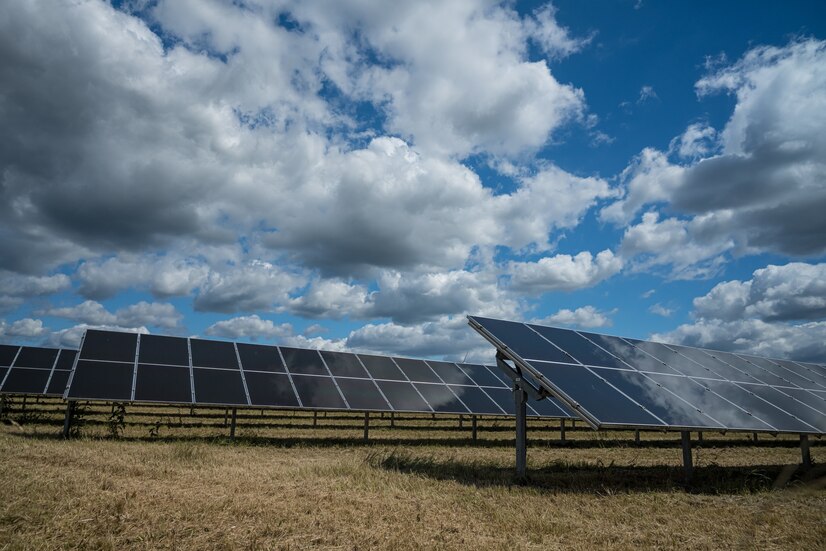
Maximizing Efficiency: Solar and KPLC AC Energy balance Tip for Factory Operations in Kenya
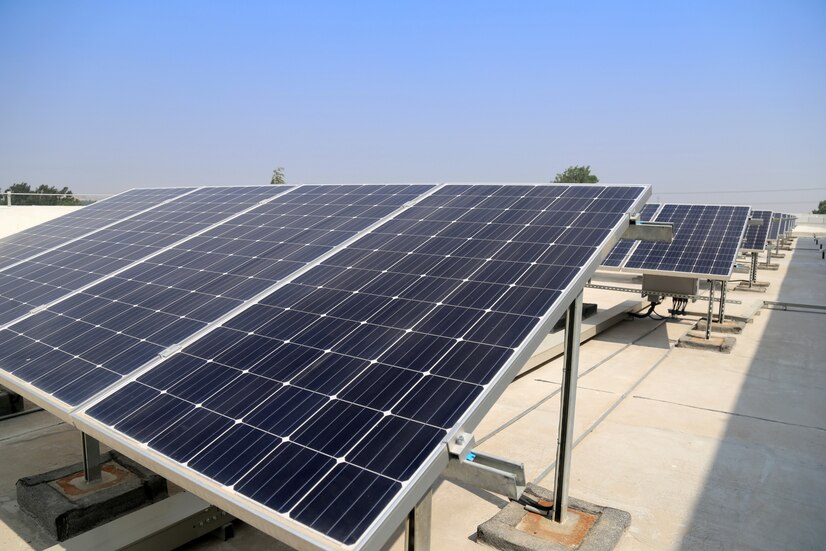
Introduction
In recent years, the global shift towards sustainable energy sources has become increasingly important. One of the most promising sources of renewable energy is solar power, which offers a clean and abundant source of electricity. In Kenya, where the sun shines brightly for most of the year, harnessing solar energy for factory operations can significantly reduce costs and environmental impact. However, the challenge lies in optimizing the use of solar energy for administrative functions while ensuring that production processes are powered by reliable AC energy. In this blog post, we will explore how a factory in Kenya can effectively combine solar and AC energy to maximize efficiency and sustainability.
Harnessing Solar Energy for Administration
The first step in integrating solar energy into factory operations is to identify areas where it can be most effectively utilized. Administrative functions such as lighting, air conditioning, and office equipment are ideal candidates for solar power. By installing solar panels on the factory roof or in an open field nearby, the factory can generate clean electricity to power these functions during the day. In Kenya, with Kimsa Electricals mono-crystalline solar panels (converts solar energy that’s in the sun-light and heat as well making them usable for both when the sun is hot and during the cold seasons) solar energy can be harnessed efficiently to meet the administrative energy needs of the factory.
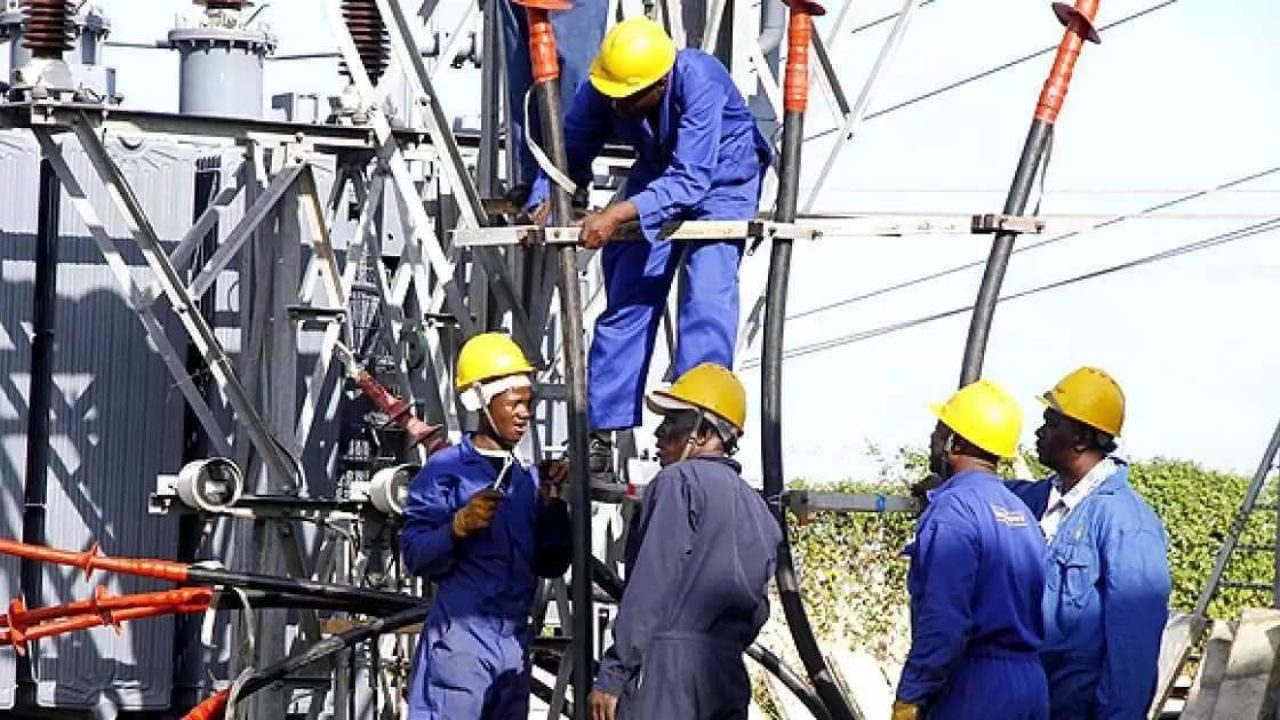
Utilizing AC Energy for Production
While solar energy can cater to administrative functions, production processes in a factory typically require a more consistent, heavy and reliable source of power. This is where AC energy comes into play. By connecting the production machinery and equipment to the grid or a dedicated AC power source, say KPLC, the factory can ensure uninterrupted operations and maintain productivity levels. In Kenya, where grid reliability can sometimes be a challenge, having a backup AC energy system in place is crucial for sustaining production activities.
Optimizing Energy Usage
To achieve the best results, the factory should implement an energy management system that intelligently balances the use of solar and AC energy. This system can prioritize solar energy for administrative functions during the day when the sun is shining the brightest, and seamlessly switch to AC energy for production processes when needed. By optimizing energy usage in this way, the factory can reduce its reliance on fossil fuels, lower electricity costs, and minimize its carbon footprint. In the next blog, we shall discuss the importance of combining solar energy with AC energy, its pros and cons.
Conclusion:
In conclusion, combining solar and AC energy for factory operations in Kenya offers a sustainable and cost-effective solution to meet energy needs. By harnessing the power of the sun for administrative functions and relying on AC energy for production processes, factories can maximize efficiency while reducing their environmental impact. With the right infrastructure and energy management systems in place, factories in Kenya can successfully transition to a more sustainable energy model that benefits both the business and the planet. For purposes of reference, Nakumax Enterprises, a powder coating and meter boxes fabrication factory in Nakuru Kenya relies on Solar Energy for administrative functions and dedicate KPLC energy to production.
Recent Post
-
benefits of solar panels 07-Sep-24
-
benefits of garden lights 19-Aug-24
Popular Tags
Subscribe us
Subscribe us and get latest news and upcoming events.
*Never share your email with others.

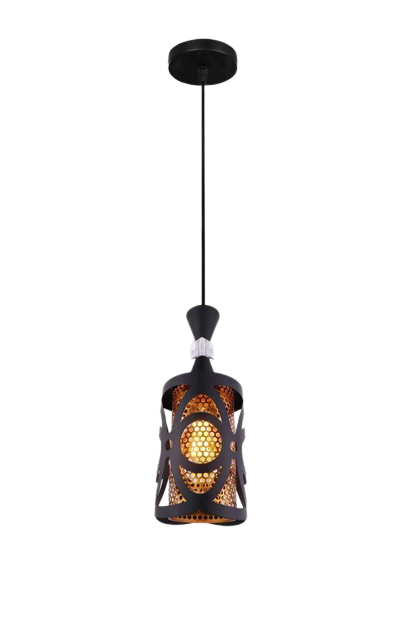

 oFJtbt" alt="products" class="img-fluid">
oFJtbt" alt="products" class="img-fluid">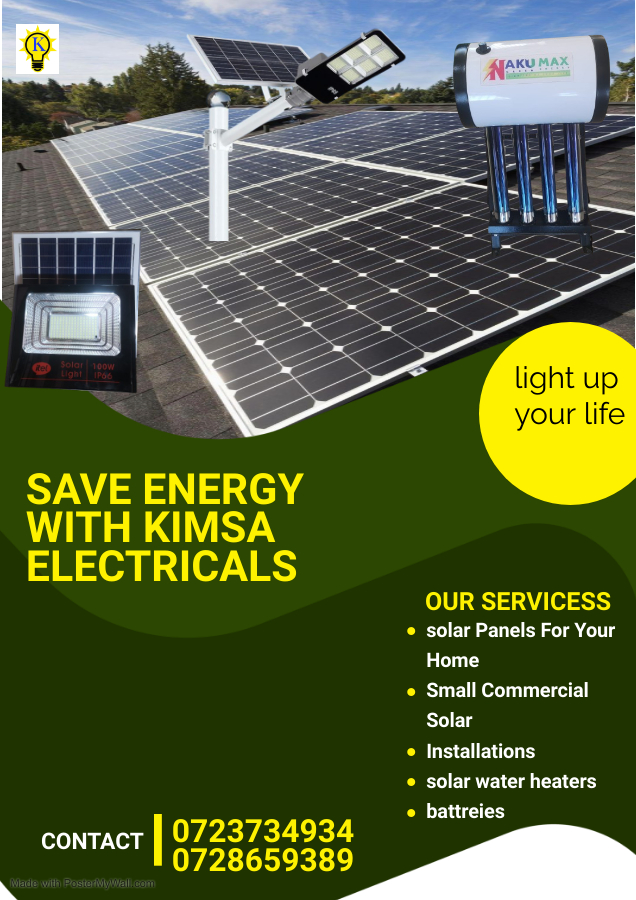

.png)